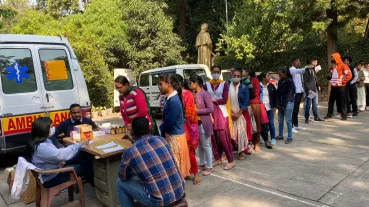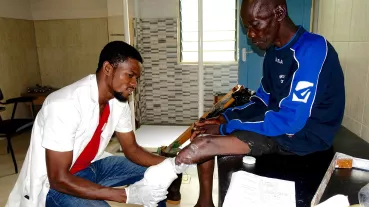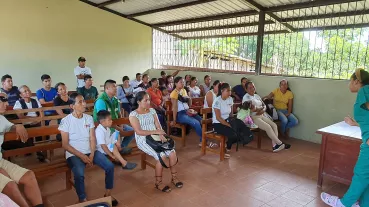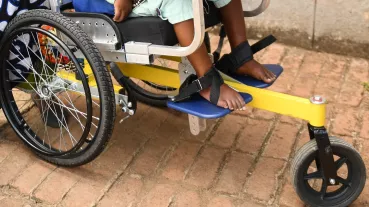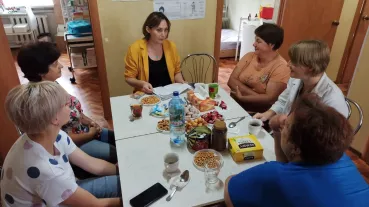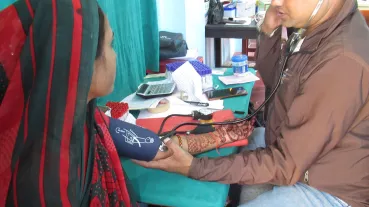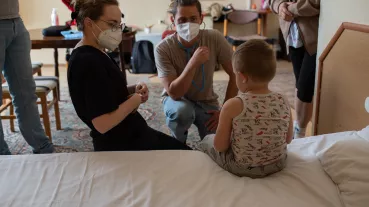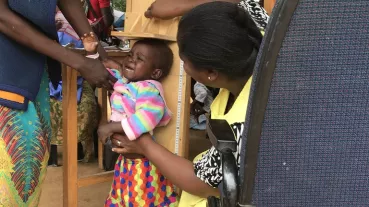Improving Healthcare System of Bogtan, Doti, Nepal (IHSP)
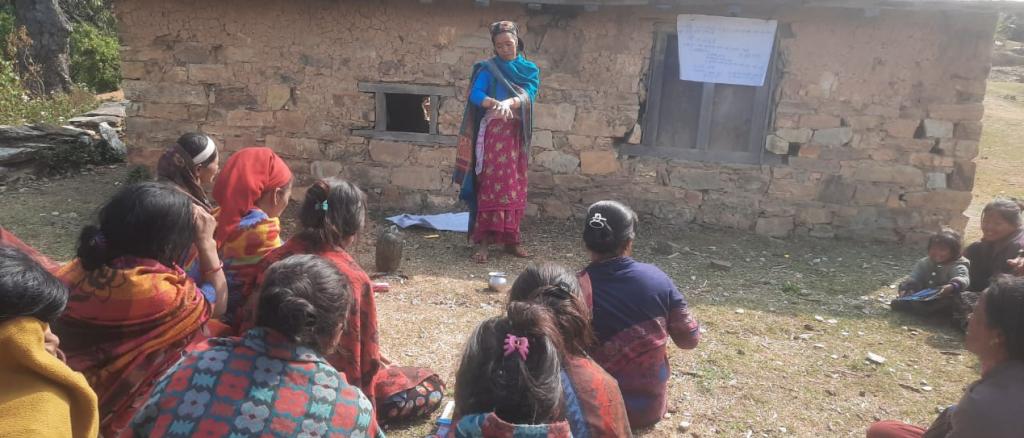
Situation:
Bogtan in Doti is located in a rural and remote area in western Nepal. Accordingly, the social infrastructure is poor. Therefore, access to mother - child health services are limited. Mental illnesses cannot be treated. Young people and their needs are not taken into account. Child marriage and taboos around menstruation and child birth are wide spread in the area.
Objectives:
The community people of Bogtan Fudsil Rural Municipality have access to improved and quality health services.
- The quality of health services at local level has improved and is available to those in need.
- The Awareness of women and adolescent groups on health issues has been increased.
- Adolescent girls and boys engage in community actions on social issues.
- Provision of technical training and equipment of public health institutions
- Coaching and reflection sessions for health workers
- Regular meetings and capacity building with mothers groups
- Working with schools and health institutions on issues of adolescent sexual and reproductive health, train peer educators
- Build treatment and care systems for mental ill people
- Strengthening of the local government administration and citizens committees on health issues
- Giving special attention to most vulnerable groups (the very poor, Dalit, disabled persons, very young pregnant women etc.)
- Conduct support groups targeting fathers and mothers in law to recognize the need for mother child health
The sustainability perspective of the project depends on the cooperation with the local government and its health service facilities. Building up a strong working relationship with these institutions is an important part of the project. Furthermore, governance structures and participation by the local communities will be strengthened. From previous projects, UMN has learnt that community ownership and empowering women will have a long-lasting effect which remains even after a project closure.
The project works with existing structures and will strengthen them. At the same time, the focus is on health education and involvement of civil society and participation structures, such as mothers' groups and citizens' committees. This is intended to strengthen the services' accountability to their communities.
